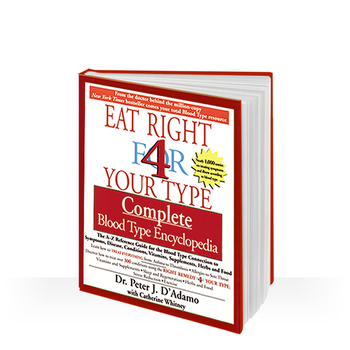A wikipedia of Dr. D'Adamo's research
Difference (from prior minor revision) Changed: 15c15 < ** [[Lectins]]. to > ** [[Lectin]]-containing organisms, such as certain plants and microbes. C O N T E N T SSee AlsoDescriptionA toxin (Gk. toxikon "(poison) for use on arrows,") is a poisonous substance produced by living cells or organisms. Toxins are nearly always proteins that are capable of causing disease on contact or absorption with body tissues by interacting with biological macromolecules such as enzymes or cellular receptors. Toxins vary greatly in their severity, ranging from usually minor and acute (as in a bee sting) to almost immediately deadly (as in botulinum toxin). Biotoxins vary greatly in purpose and mechanism, and can be highly complex (the venom of the cone snail contains dozens of small proteins, each targeting a specific nerve channel or receptor), or relatively small protein. UseBiotoxins are used in nature for two primary reasons:
Some of the more well known types of biotoxins include:
When toxins are generated by bacteria, they are called toxoids. The toxins may be produced either in the living body during infection (for instance, by tetanus) or by bacteria in dead biological material. In the context of complementary medicine the term is often used as a broader category of any harmful substance claimed to cause ill health. DiscussionLinksAttribution
|
COMPLETE BLOOD TYPE ENCYCLOPEDIA
The Complete Blood Type Encyclopedia is the essential desk reference for Dr. D'Adamo's work. This is the first book to draw on the thousands of medical studies proving the connection between blood type and disease. Click to learn more
Click the Play button to hear to Dr. Peter J. D'Adamo discuss .
|
The statements made on our websites have not been evaluated by the FDA (U.S. Food & Drug Administration).
Our products and services are not intended to diagnose, cure or prevent any disease. If a condition persists, please contact your physician.
Copyright © 1996-2024, Hoop-A-Joop, LLC, Inc. All Rights Reserved. Privacy Policy | Log In